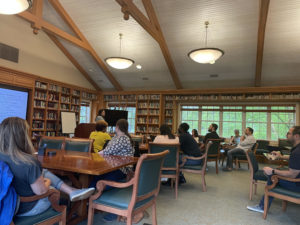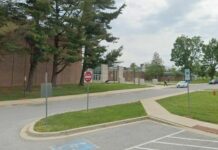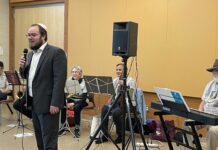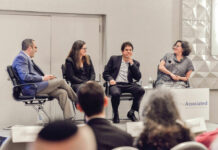
Melissa Ziev is Jewish, and she recognizes that the Torah and the sanctuary space are special and important to Jews, but she wants to explore spirituality outside of her own religion.
“I get the spiritual triggers of all the different aspects of a Jewish service,” Ziev said. “I started to see [that] other people have that with their spirit of sacred space.”
That’s what the Institute for Islamic, Christian, and Jewish Studies is for. Located on the corner of Dulaney Valley Road and Locustvale Road, ICJS brings together people from different religions to learn from each other. The institute has staff and scholars that come from a variety of different religious backgrounds, including Ziev, who serves as the director of operations.
The idea for ICJS came about in 1986. That year, the ninth National Workshop on Christian-Jewish Relations was being held in Baltimore. After the event, a group of corporate leaders in Baltimore wanted to continue promoting the importance of Jews and Christians coming together and learning with each other. They formed the Institute for Christian and Jewish Studies in 1987.
In 2013, the ICJS board voted to include the Muslim community and changed the name to the Institute for Islamic, Christian, and Jewish Studies.
ICJS has a variety of programming that brings people from different religions and perspectives together.
This includes three one-year fellowships to help individuals learn more about how to integrate religion into different areas of society. While the fellowships span a year, each program only meets once a month for 10 months. These are the Congregational Leaders fellowship, which educates clergy and lay leaders at various religious congregations; the Justice Leaders fellowship, which brings together community and civic leaders; and the Teachers fellowship, which is targeted toward different types of educators.
Each fellowship also does programming outside of their monthly meetings. This includes attending services or events at other places of worship to understand different religions.
“We want them to be out and about and learning about how Baltimore is an interreligious city,” said Christine Gallagher, the program director for teachers at ICJS.
ICJS offers courses that go in depth about one particular religion, compare different religions or focus on a certain issue. For example, there are classes on Christian nationalism and on how economic justice connects to religious values, Zieve said.
Additionally, ICJS makes sure to include and discuss nonreligious individuals.
“We’ve had a number of our teacher fellows who identify as [non-religious], which is the largest growing group when you look at the demographics of religion in America,” Gallagher said.
According to the Pew Research Center, in 2019, “the religiously unaffiliated share of the population” was at 26%. This number has grown from 17% in 2009 and continues to grow.
“Even if you’re not religious, you know you’re living in a world with many people who are bringing their religious identity with them into public spaces,” Ziev said.
Religion is connected to and impacts many different aspects of society, like history, literature and politics, said Marisa Shultz, the school program coordinator at the Jewish Museum of Maryland.
Last February, Shultz attended an event called On the Borders, which discussed how Jews, Christians and Muslims all read and interpret the Bible differently.
“I was in breakout rooms talking to people about religious identity,” Shultz said.
Through all of their programs, ICJS strives to “dismantle religious bias and bigotry,” according to the website.
For example, in the Teachers fellowship, educators are learning to teach their students about how to discuss religion and accept others.
“Interreligious literacy helps promote empathy and compassion,” Shultz said.
Ziev believes that other religions may seem extremely different, but after learning about them, it is easier to appreciate the similarities along with the differences.
“My favorite part about working with ICJS is really the community of care that they’ve created,” Shultz said. “I always felt like my voice was valued at ICJS.”







